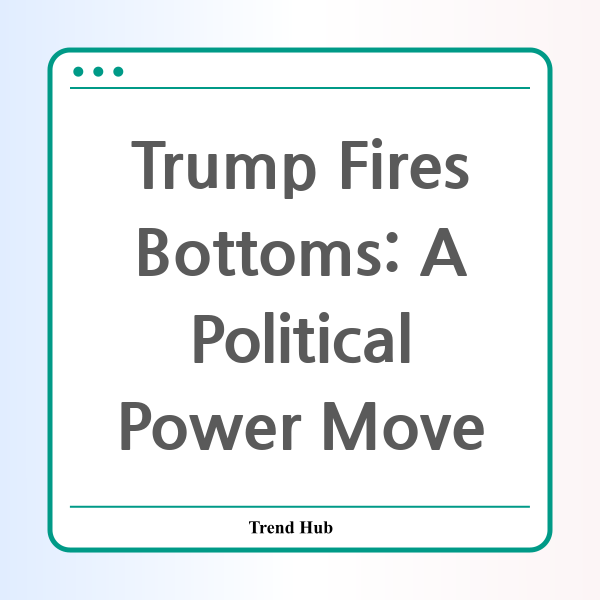* This website participates in the Amazon Affiliate Program and earns from qualifying purchases.

In a surprising political twist, former President Donald Trump made headlines just after his inauguration, announcing via his social media platform that he had let go of several individuals from presidential councils, including former Atlanta Mayor Keisha Lance Bottoms. However, there’s one catch: Bottoms had already resigned from her position on the President’s Export Council prior to this announcement.
So, what does this mean for both Trump and Bottoms? Let’s dive into the implications of this abrupt dismissal and Bottoms’ witty response that has quickly become a talking point across social media platforms.
Upon taking office, Trump wasted no time making his mark, issuing a series of executive actions aimed at reversing various initiatives that were previously established by his predecessor, President Joe Biden. Among these was the termination of Bottoms from her role, which instantly drew attention primarily due to the fact that she had already communicated her resignation.
Bottoms, who served as a senior advisor under Biden, pointed out the irony of Trump’s announcement. On January 4th, she had already submitted her resignation, effective on January 20, 2025, as a precautionary measure for the upcoming administration transition. In her resignation letter, she expressed gratitude for the opportunity to serve but was clearly preparing for a change in leadership.
After Trump's late-night post proclaiming "YOU’RE FIRED," Bottoms took to Instagram to respond, stating that the former president was “a day late and a dollar short.” Her comment captured the attention of many, as she noted how one cannot be fired from a position already left. This sequence of events raises questions about Trump’s priorities and decision-making processes in the early hours of his presidency, especially when he seemed to focus on her rather than pressing global issues.
In another twist, while Bottoms was dismissed, Trump also announced the termination of Mark Milley, a distinguished Army general, as well as others from their advisory roles. This highlights a strategic move to reshape advisory councils that could significantly influence the direction of federal policy and military operations. However, as Bottoms pointed out, targeting her, a humanitarian, and Milley, a highly regarded general, at such a late hour may not be an exemplary use of presidential time and resources.
Bottoms further noted that with so many critical matters facing the nation and the world, such as economic recovery and global security, it is puzzling why Trump chose to focus on dismissing her and others via social media instead of addressing more pressing issues. She stated, "No matter how you voted, I think we can all agree that targeting me—and a man who is dedicated to feeding displaced people in Los Angeles—is not the best use of time for the President of the United States." This sentiment resonates with many citizens who are looking for leadership that prioritizes significant issues.
Ultimately, this situation serves as a reminder of the complexities and dynamics of political leadership. While power shifts and personnel changes are expected in governmental transitions, the manner and timing of these actions can have far-reaching consequences. As Bottoms continues to engage with the public and respond to these developments, it’s clear that her voice remains strong in the political discourse.
As we watch this political chess game unfold, it will be interesting to see how the new administration navigates similar challenges and whether it will focus on more meaningful issues rather than personal vendettas. One thing is for sure: the political landscape is never dull, and it will be worth keeping an eye on future announcements from both Trump and other political figures.
* This website participates in the Amazon Affiliate Program and earns from qualifying purchases.